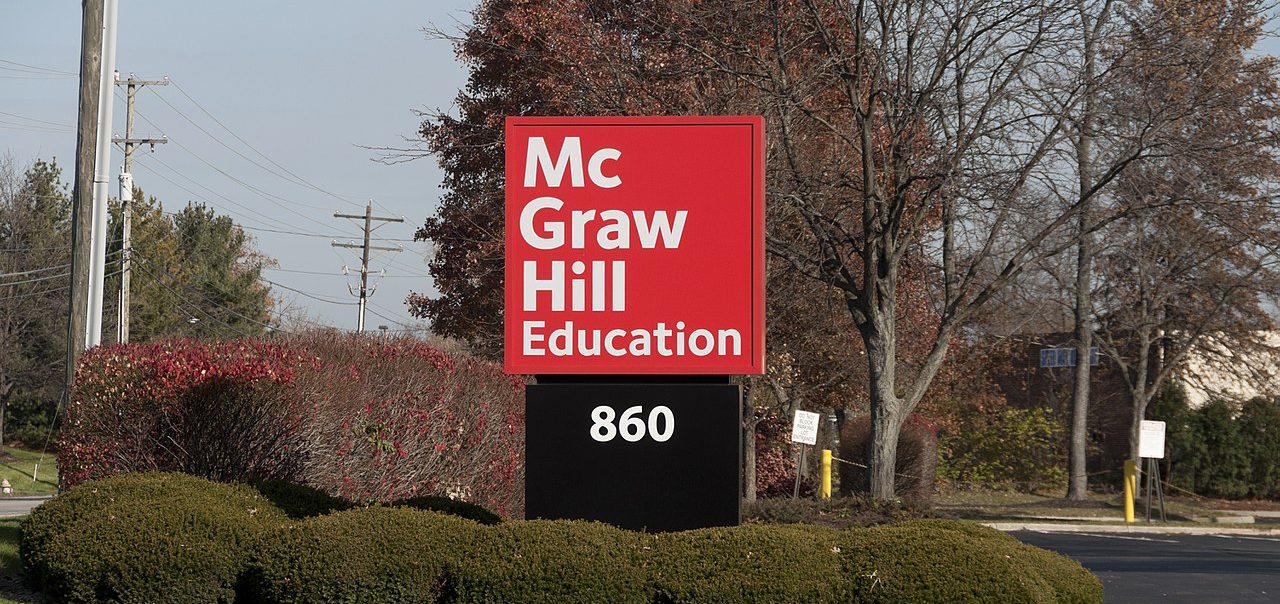
Articles
Editor’s Picks
Industry News
McGraw-Hill and Cengage Call Off Merger
By Henry Kronk
May 04, 2020
McGraw-Hill and Cengage mutually called off their plans to merge on May 4 citing “a prolonged regulatory review process and the inability to agree to a divestitures package with the U.S. Department of Justice,” according to a statement.
“Cengage entered into the merger agreement as a leader in helping students access affordable course materials and digital courseware,” said Cengage CEO Michael Hansen. “Although we are disappointed that we were unable to finalize the merger, the opportunity ahead remains significant.”
Cengage and McGraw-Hill Couldn’t Come to Terms with the DOJ
By most estimates, the two companies form the second- and third-largest education publishers behind Pearson.
The two formally announced plans to enter into an all-stock merger on May 1, 2019. The deal quickly faced backlash from students and advocacy groups. At the time, McGraw-Hill and Cengage controlled roughly 21% and 20% of the college textbook market, respectively. Pearson, the top incumbent, controlled 41%. Education stakeholders and open markets activists argued that the resulting entity would consolidate the market to such an extent that competition would be significantly limited.

In response, the two publishers pledged to work with governments to divest themselves of any assets in market subsections where they directly competed. The companies had been optimistic they could reach a deal.
The Deal Faces Challenges
With scrutiny from American and U.K. regulatory bodies, however, the proposed merger began to look like less of a sure thing. Though originally scheduled to close by the end of March 2020, Cengage revised that date to “mid 2020” in their February FY Q3 report.
In March, two democratic U.S. representatives who sit on the House Antitrust Subcommittee, Chairman David Cicilline (Rhode Island) and Commerce Chair Jan Schakowsky (Illinois) wrote a letter to the Department of Justice expressing concern with the deal.
A few weeks later, the U.K. Competition and Markets Authority (CMA) issued a decision to refer the merger to further regulatory oversight. The CMA found that the companies’ proposed divestitures were not sufficient to preserve market competition.
Finally, in April, a group of six democratic senators joined their colleagues in the House, calling on the DOJ to exercise caution with the deal. The letter was signed by Senators Richard Blumenthal (Connecticut), Richard Durbin (Illinois), Cory Booker (New Jersey), Dianne Feinstein (California), Mazie Hirono (Hawaii), and Tina Smith (Minnesota).
They wrote, “The combination of high concentration, a history of skyrocketing textbook prices that far outpace inflation, and a captive market makes this anticompetitive merger one that risks further aggravating the affordability of education.”
Calling Things Off
This oversight and the companies’ inability to reach a compromise with regulators has caused them to walk away from the merger.
“Because the required divestitures would have made the merger uneconomical, McGraw-Hill and Cengage have decided to terminate the merger agreement,” said McGraw-Hill CEO Simon Allen, in a statement. “This will allow each of us to focus on our respective stand-alone strategies for the benefit of our owners, employees, customers and other stakeholders. I want to express my deep appreciation for the efforts and incredible commitment demonstrated by McGraw-Hill’s employees over the past year and particularly in recent weeks as they have worked tirelessly to help educators make the transition to online learning.”
Featured Image: Wikimedia Commons.









No Comments